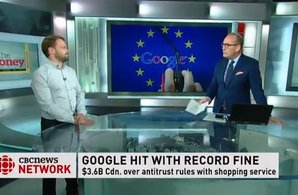What is Search Engine Optimization?
- Home
- Knowledge Sharing
- What is Search Engine Optimization?
You've heard the term ever since you launched your first website and posted that first blog. As familiar as it seems, do you really grasp the concept of search engine optimization ? Now is a good time to step back and take a fresh look. You may be surprised at how much there is to this process and why it is so important.
Understanding the Essentials
SEO is the collective term used to identify online marking strategies designed to increase the number of visitors to your web pages. This is done by utilizing elements that consumers are most likely to employ when they conduct a search. By knowing how people search for what they want, you can structure your pages in a manner that ensures higher placement in search engine results. Since many people rarely look past the first page, your goal is to appear high in the results and capture consumer attention.
Why Should You Care About SEO?
Search engine optimization matters because it's the primary way readers find your pages. A 2014 survey by Conductor revealed that 64% of all web traffic is the result of organic searches. Roughly 12% comes from directly entering a URL into a search engine. Paid searches that involve displaying ads alongside search engine ranked returns account for another 6%. Redirects through social media growing, but account for around 2%. The remainder results from strategies other than those named above.
The bottom line is that SEO is the most effective way to reach the consumers who are searching for what you have to offer. Ignore the most effective strategies for search engine placement and run the risk of missing out on quite a bit of traffic and ultimately a lot of income from sales.
Is It All About Words?
In the early days of Internet commerce, it was definitely all about the words. Slower connection speeds made text the undisputed king. Even today, you still need to be aware of what words you use and choose them wisely.
What you must also remember is that SEO is not just about words these days. It can be about videos you post on your sites, social media pages, and blogs. The name you assign to the video, along with the video description, will be picked up by the major search engines. You want those words to relate directly to the content of the video.
The images or animation you choose for your pages also matter. They must speak directly to the subject the reader wants to explore. No one is interested in a shot of a field of corn when they are seeking information on how to cultivate a flower garden. When you think of images, make them directly relevant to your keywords, your content , and your titles.
Speed is another factor that is often overlooked with SEO. There was a time when the main danger of slow page loads was that readers would lose patience and back away. That's still something you want to avoid, but now the search engines are watching too.
If your pages are slow to load on any device - including a smartphone - that will harm your rankings. Even if the content is great, the fact that it takes longer to load reduces the value and prompts the search engine to place your page lower in the results.
How Has SEO Changed Over Time?
Approaches to search engine optimization continue to shift as the Internet changes. That means your approach must change too. The fact that a certain strategy served you well a couple of years ago doesn't mean it's still the most effective solution.
Keyword use is a prime example. Several years ago, more frequent use of keywords and keyword phrases translated into more traffic. As search engines became more intuitive, gratuitous use of keywords (keyword stuffing) led to lower page rankings. Savvy business owners quickly learned that using keywords that were relevant and provided value to the content was a better way to attract love from the major search engines.
Don't got it alone when it comes to working out and refining an approach to search engine optimization. Seek out the help of professionals who understand what works today. Be prepared to make some changes to your pages, including changing images and freshening the content regularly. In the long run, your efforts will pay off.






